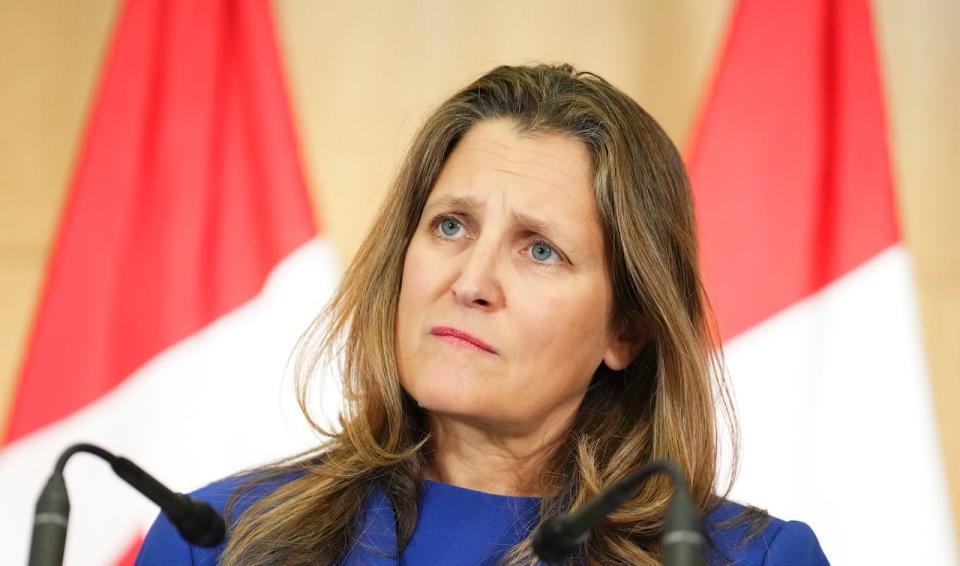As the deadline approaches, Windsor businesses will struggle to pay back pandemic loans

The pandemic and the high interest rates that have followed have taken their toll across Canada.
Many Windsor-based small businesses are still feeling the impact.
When lockdowns began in the first half of 2020, the Canada Emergency Business Account (CEBA) program offered interest-free loans backed by the federal government. A business could apply for up to $60,000 through the program. Any business that repays the bulk of the loan by Jan. 18 can see up to $20,000 of the loan forgiven.
In Windsor, some small business owners are feeling the weight of the future as the deadline approaches.
Things have not fully recovered from COVID. - Larry Horwitz
Larry Horwitz, owner of Horwitz Holdings and head of Wyandotte Town Centre BIA, owns a number of businesses across Windsor — including a hair salon and a restaurant. Horwitz said that he, like many others, is struggling to meet the deadline for loan forgiveness.
"We haven't paid yet, it's a difficult time," Horwitz said. "Things have not fully recovered from COVID."
Horwitz believes the government should significantly extend the deadline, or forgive the loans entirely.
"People throughout the business community that I am dealing with ... have had a really difficult time."
Facing the future
In September, the government announced an 18-day extension to the deadline. Yet, advocacy groups such as the Canadian Federation Of Independent Business (CFIB) and Restaurants Canada have been pushing the government to extend the forgiveness deadline to the end of 2024.
The government has pushed back against requests for further extension.

Deputy Prime Minister and Minister of Finance Chrystia Freeland holds a press conference in Ottawa on Friday, Nov. 3, 2023. (Sean Kilpatrick/The Canadian Press)
Finance Minister Chrystia Freeland was asked by a reporter earlier this month if she'd reconsider the request to extend the forgiveness deadline. She said that while she knows the deadline is worrying some business owners, they have until 2026 to repay the loan in full and five per cent interest is "reasonable."
"I know people have some anxiety about it, which is completely understandable," Freeland said. "You have three years to pay it back, and the rate of interest charged over those three years is really, really reasonable."
Making financial sense
For many, the loans were given during a tumultuous time where the fate of some businesses was uncertain. Now that the deadline of Jan. 18 is looming, many business owners are worried that they may be asked to pay back the full $60,000 amount.
Chris MacLeod is a realtor and owner of Realty ONE Group. His business has paid back $40,000 of their $60,000 loan before the deadline, and consequently has had $20,000 forgiven. MacLeod believes there could be alternatives such as a payback structure spread over years, rather than complete loan forgiveness.
"I think that that was the the spirit of the program was to keep people employed and to keep businesses open, and we acted within what we understood to be the spirit of the program," he said.

Chris MacLeod is a realtor and owner of Realty ONE Group. (TJ Dhir/CBC)
He added that business owners should work with their bank to try and get a loan, and use some of that to pay the required amount by the loan forgiveness deadline.
"I do understand how difficult that could be...for some businesses," he said. "But I'd encourage them to go in and figure out if there is a way, because it's obviously very expensive if you have to pay back the full $60,000 versus just the $40,000."
What can be done?
While some businesses have been able to pay back the loans in time and qualify for the $20,000 forgiveness, others are struggling to meet the forthcoming deadline.
Carol Normandeau is the executive vice president of advice and service at Libro Credit Union. Her organization was involved with obtaining CEBA loans for businesses from the beginning of the scheme, a number that peaked at 2,600 loans.
She said that when the loans were originally granted it crossed a variety of different sectors, and her organization was instrumental in offering advice to business owners.
"You certainly had a lot of smaller businesses that had reduced hours, or were actually closing. You had others where there were challenges keeping staff on," Normandeau said. "The coaching and the conversations started right from day one because the program was launched and it was messy."
"We were making sure that the owners understood the program and that we could set them up for success."
But, in a time of inflationary strain on certain businesses, such as food costs in the service sector, some owners are feeling the pressures more than others.
"I believe most financial institutions were very proactive in looking to support their small business owners and clients," Normandeau said. "There's a small portion of business owners who hoped the government would extend the deadline or even offer complete forgiveness ... We're hearing it from a few of our owners, that frustration and that disappointment."
"It's not a surprise and there are those that need the support with the repayment, so they can take advantage of the forgivable portion."


